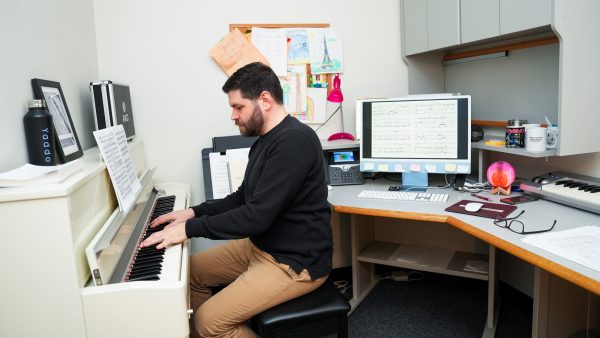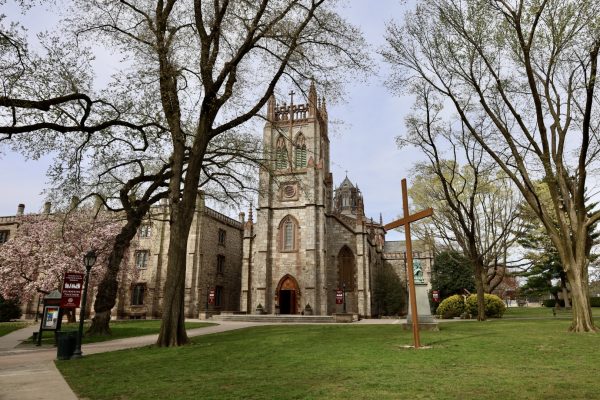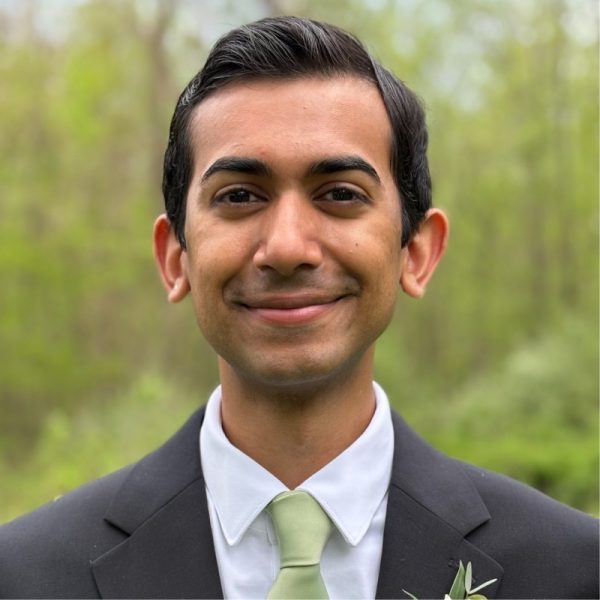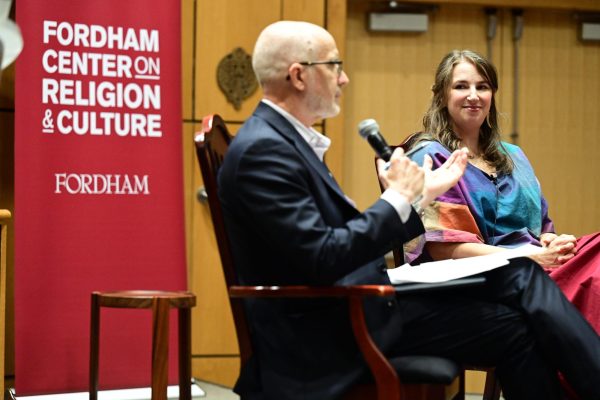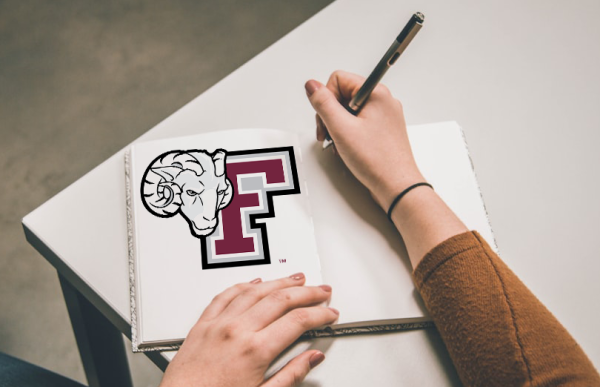Fordham Junior Heads Up Biology Team Studying DNA Fragments
Madeline Drucker, FCRH ’24, is the head of a biology team working with DNA fragments to create new strands of DNA with mutations. Drucker’s research aids a larger study on translation synthesis run by Dr. Elizabeth Thrall in her biophysical chemistry lab.
In this translation study, Drucker’s work is the first step in a long process. Since joining the lab last spring, Drucker has successfully made new strains of DNA with mutations and is currently working on making combinations of multiple mutations to see if they affect each other. Drucker and the rest of the biology team work with these DNA mutations and tag them with fluorescent proteins, so the rest of the research team can see how damaged DNA affects cell growth.
“I’m the first stage in all of the crucial components to make this lab happen,” said Drucker. “It’s very nice to see how the biology team’s work can be passed onto the next team which looks at effects on cell growth and finally onto the imaging team, and we get results. The biology team is definitely the first step in a kind of assembly line. Our results don’t prove anything just yet, but all of us work together, and our work bounces off each other to create the final result.”
Drucker said that the overall translation synthesis study is a continuation of research Thrall started while working towards her Ph.D.
“We’ve taken it a lot further, and we are studying a lot more in depth than she was at the time. We can provide a lot more data with a team of 10 people than she could by herself,” said Drucker.
According to Drucker, this research could provide preliminary data to aid cancer research and other larger-scale research projects and that the data Thrall’s lab has produced so far is “promising.” The end goal of the study is to figure out how cells can work past damaged DNA rather than copying the damaged DNA.
As of now, Thrall’s research does not have a projected end date. “With this lab, the more data you have, the more believable your results are. So we’re trying to produce a lot of numbers, and a lot of good data,” said Drucker.
Drucker originally became involved in this study by attending a research talk for the chemistry department, where professors showcased their work for students. As a biology student, Drucker said that she was not expecting to join any of the research projects presented, but Thrall’s research stood out because of the biology component.
In the future, Drucker said that she intends to take a gap year before going to medical school to pursue a career as a reproductive endocrinologist. Her work in Thrall’s lab is very different from the type of genetics Drucker is interested in, but both allow her to work with living cells.
“Working in this lab has benefited me a lot. It has taught me to work in groups but also to work independently, to trust intuition, but also to ask questions. It helps you find a really good balance between trusting yourself and also learning by yourself and with others. Working in this lab, the material is very intricate and high-level. I feel like it teaches you a lot about how to be a good scientist,” said Drucker.






































































































































































































